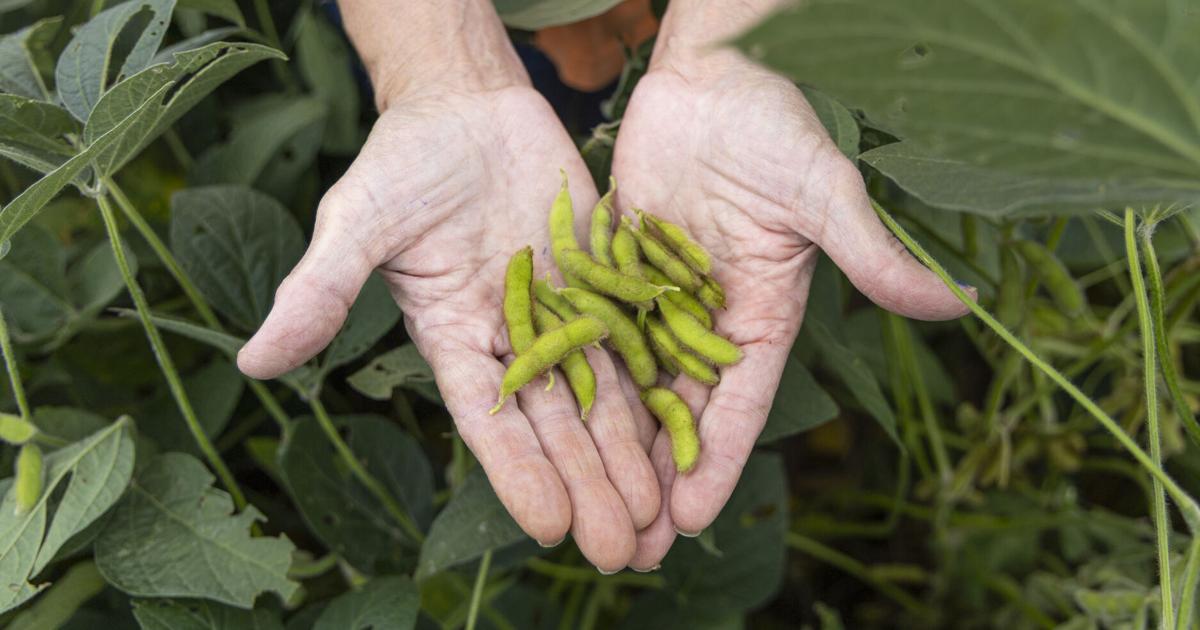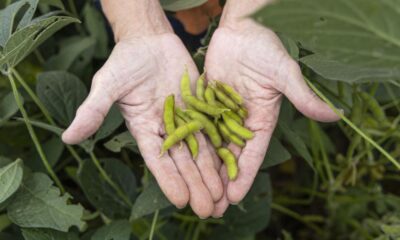Health
Poker Wisdom Applies to Agriculture: Who’s the Real Loser?

In a striking analogy, the intricate dynamics of poker can illuminate the challenges faced by farmers and the agricultural sector. The saying that if you cannot identify the biggest loser in a poker game within 20 minutes, you are likely that loser, resonates deeply in today’s agricultural landscape. The notion of a “rigged game” suggests that many stakeholders in the farming industry are grappling with unfavorable conditions that could lead to significant losses.
The agricultural sector often finds itself at the mercy of shifting market conditions, government policies, and global trade dynamics. Farmers, particularly in regions like Nebraska, are increasingly voicing concerns about the structural inequities that appear to favor larger agribusinesses over family-owned farms. The disparity in resources, access to technology, and market power creates an environment where smallholders struggle to compete, echoing the sentiment of being the “patsy.”
Market Realities and Growing Discontent
Recent discussions have highlighted the need for reforms in agricultural policies to ensure a fairer playing field. Matt Rhule, head coach of the Nebraska Cornhuskers, has noted the importance of investing in local communities and supporting smaller farming operations. Just as in sports, where every player must have a fair chance to succeed, the agricultural industry requires measures that empower all participants, not just the dominant players.
Reports from various sources indicate that family-owned farms are being pushed to the brink due to rising costs and stagnant prices for their products. The situation is exacerbated by unpredictable weather patterns and supply chain disruptions, which have become more frequent in recent years. Farmers are calling for a reassessment of policies that disproportionately affect their livelihoods and contribute to a cycle of debt and despair.
Community Responses and Future Prospects
In light of these challenges, grassroots movements are emerging across the country, especially in urban areas like Lincoln. Local initiatives aimed at supporting sustainable agriculture and promoting locally sourced food are gaining traction. Events such as farmers’ markets are fostering connections between producers and consumers, helping to build a more resilient food system.
Moreover, the push for policy changes is gaining momentum, with activists advocating for regulations that limit monopolistic practices within the agricultural sector. These efforts aim to create an environment where small farmers can thrive alongside larger enterprises, reducing the risk of being marginalized in what many perceive as a rigged game.
As the agricultural community navigates these complexities, it becomes increasingly crucial for stakeholders, including policymakers, consumers, and farmers themselves, to engage in open dialogue. Recognizing the challenges and working collectively towards equitable solutions will be essential for the future of farming. The stakes are high, and the outcome of this game will have lasting implications for generations to come.
-

 Technology5 months ago
Technology5 months agoDiscover the Top 10 Calorie Counting Apps of 2025
-

 Health2 months ago
Health2 months agoBella Hadid Shares Health Update After Treatment for Lyme Disease
-

 Health3 months ago
Health3 months agoErin Bates Shares Recovery Update Following Sepsis Complications
-

 Technology4 months ago
Technology4 months agoDiscover How to Reverse Image Search Using ChatGPT Effortlessly
-

 Technology1 month ago
Technology1 month agoDiscover 2025’s Top GPUs for Exceptional 4K Gaming Performance
-

 Technology2 months ago
Technology2 months agoElectric Moto Influencer Surronster Arrested in Tijuana
-

 Technology5 months ago
Technology5 months agoMeta Initiates $60B AI Data Center Expansion, Starting in Ohio
-

 Technology5 months ago
Technology5 months agoRecovering a Suspended TikTok Account: A Step-by-Step Guide
-

 Health4 months ago
Health4 months agoTested: Rab Firewall Mountain Jacket Survives Harsh Conditions
-

 Lifestyle5 months ago
Lifestyle5 months agoBelton Family Reunites After Daughter Survives Hill Country Floods
-

 Technology4 months ago
Technology4 months agoHarmonic Launches AI Chatbot App to Transform Mathematical Reasoning
-

 Technology3 months ago
Technology3 months agoUncovering the Top Five Most Challenging Motorcycles to Ride





















